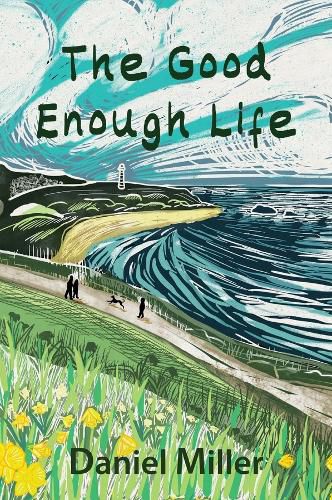Readings Newsletter
Become a Readings Member to make your shopping experience even easier.
Sign in or sign up for free!
You’re not far away from qualifying for FREE standard shipping within Australia
You’ve qualified for FREE standard shipping within Australia
The cart is loading…






This book is a highly original exploration of what life could and should be. It juxtaposes a philosophical enquiry into the nature of the good life with an ethnography of people living in a small Irish town.
Attending carefully to the everyday lives of these people, the ethnographic chapters examine topics ranging from freedom and inequality to the creation of community and the purpose of life. These chapters alternate with discussions of similar topics by a wide range of philosophers in the Western tradition, from Socrates and the Stoics through Kant, Hegel, and Heidegger to Adorno, Rawls, MacIntyre, and Nussbaum.
As an ethnography, this book reveals just how much we can learn from a respectful acknowledgement of what ordinary modest people have achieved. By creating community as a deliberate and social project that provides the foundation for a more fulfilling life, where affluence has not led to an increase in individualism, the people in this town have found a way to live the good enough life. The book also shows how anthropology and philosophy can complement and enrich one another in an enquiry into what we might accomplish in our lives.
$9.00 standard shipping within Australia
FREE standard shipping within Australia for orders over $100.00
Express & International shipping calculated at checkout
This book is a highly original exploration of what life could and should be. It juxtaposes a philosophical enquiry into the nature of the good life with an ethnography of people living in a small Irish town.
Attending carefully to the everyday lives of these people, the ethnographic chapters examine topics ranging from freedom and inequality to the creation of community and the purpose of life. These chapters alternate with discussions of similar topics by a wide range of philosophers in the Western tradition, from Socrates and the Stoics through Kant, Hegel, and Heidegger to Adorno, Rawls, MacIntyre, and Nussbaum.
As an ethnography, this book reveals just how much we can learn from a respectful acknowledgement of what ordinary modest people have achieved. By creating community as a deliberate and social project that provides the foundation for a more fulfilling life, where affluence has not led to an increase in individualism, the people in this town have found a way to live the good enough life. The book also shows how anthropology and philosophy can complement and enrich one another in an enquiry into what we might accomplish in our lives.